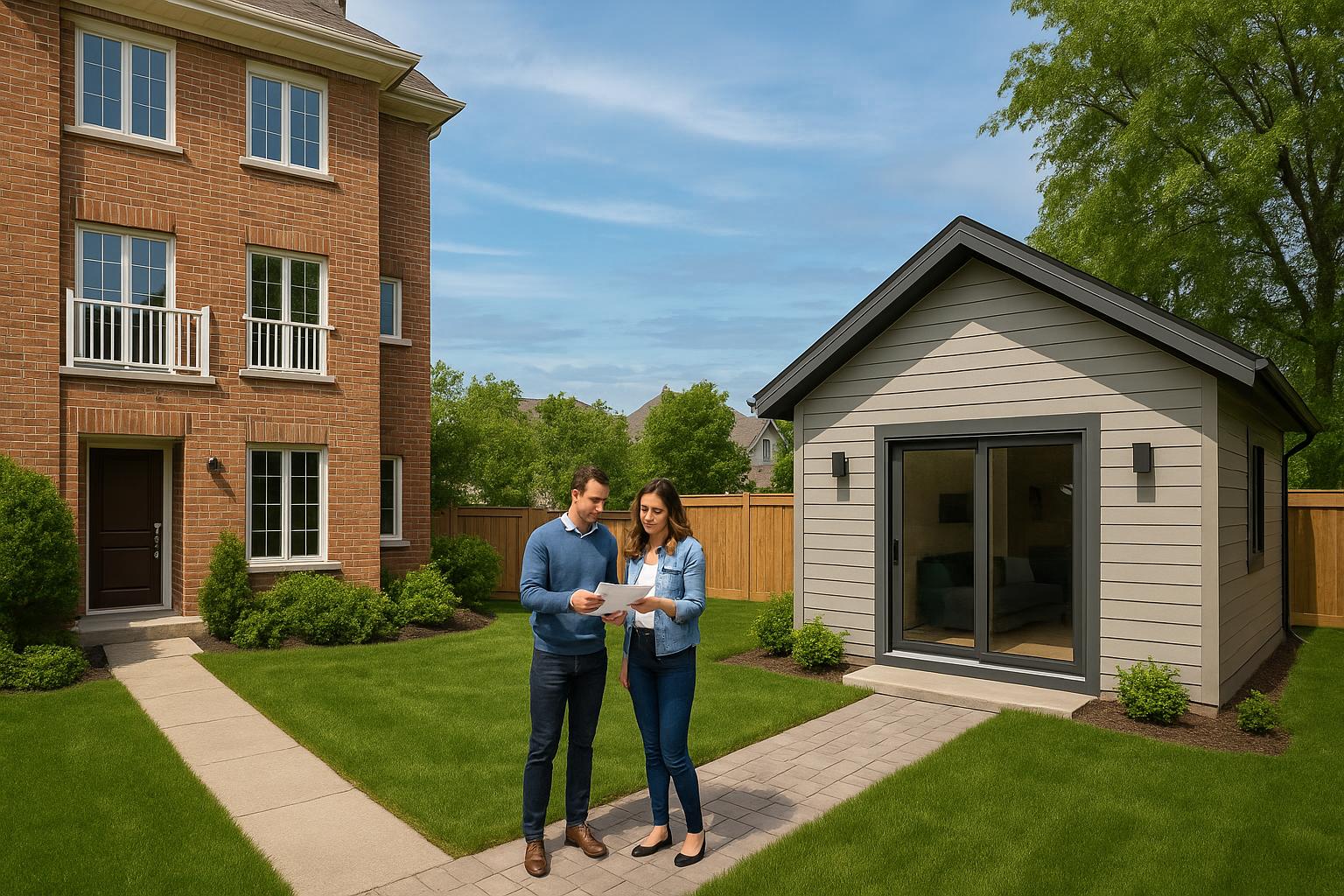
Strata Approval for Condo ADUs: A Complete Guide to Backyard Suite Permission and Property Value Increase in Canada
Estimated reading time: 8 minutes
Key Takeaways
- Strata Approval Requirement: Any significant modification to a condo or strata property requires formal consent from the strata council.
- Comprehensive Process: The approval process involves reviewing bylaws, submitting professional plans, obtaining municipal permits, and engaging with neighbours.
- Property Value Increase: Legal ADUs can boost your property’s worth by 10–20% while generating additional rental income.
- Understanding Regulations: Familiarize yourself with provincial legislation and local zoning bylaws to navigate strata rules effectively.
Table of contents
What is Strata Approval and Why is it Important for Condo ADUs?
Strata approval is the formal consent required by a strata council or board when making significant modifications to a condominium in Canada. Without this approval, you cannot proceed with changes such as adding a secondary living unit. A condo ADU (Accessory Dwelling Unit) – also known as a backyard suite, in-law suite, laneway house, or secondary suite – creates extra living space either within or adjacent to your condo, subject to local rules.
Additionally, obtaining backyard suite permission means receiving the green light from both the strata corporation and the municipality. For more insight on why strata approval is critical, check out this research.
Understanding Strata Approval: Navigating Canadian Condo Rules
The process for securing strata approval typically involves:
- Submitting architectural plans: Detailed blueprints and professional drawings are often required.
- Preparing a written proposal: Clearly describe your planned ADU or modification.
- Providing documentation: Attach proof of ownership and relevant site plans.
- Undergoing a strata vote: Significant changes may require a majority vote from owners.
- Committee review: In larger projects, engineers or architects might assess the proposal.
For legislative guidance, refer to provincial statutes such as Ontario’s Condominium Act and BC’s Strata Property Act via this link.
Typical Challenges and Restrictions with Strata Approval
Securing approval for a condo ADU can be complex due to factors like:
- Structural limitations: Alterations to load-bearing walls or common areas are often restricted.
- Noise and privacy concerns: Additional living units may increase sound levels, prompting neighbour complaints.
- Parking complications: Both municipal and strata bylaws may enforce strict parking requirements. For ideas on parking solutions, visit this resource.
- Insurance implications: Unauthorized modifications can result in voided insurance coverage.
Canadian Condo Rules: The Regulatory Framework
Canadian condo rules are governed by overlapping layers of legislation:
- Provincial laws: Ontario’s Condominium Act and BC’s Strata Property Act outline the basics of strata management.
- Municipal zoning bylaws: Local regulations dictate setbacks, building height, parking, and density requirements.
- Bylaw variations: Different strata corporations have unique restrictions regarding ADU types, sizes, and exterior modifications.
For a detailed overview of these regulations, please see this link.
Step-By-Step Guide: Getting Backyard Suite Permission
Securing backyard suite permission involves several essential steps:
-
Review Bylaws and Regulations:
Examine your strata bylaws and municipal zoning rules for any restrictions and allowed modifications. For guidance, see this guide.
-
Initiate Communication with the Strata Council:
Engage with the council early to present your proposal and discuss potential challenges. Tips for effective communication can be found here.
-
Prepare a Comprehensive Application:
Include professional drawings, a detailed project description, and all necessary supporting documents such as proof of ownership and service plans. For more on ADU design, visit this resource.
-
Obtain Municipal Permits:
Apply for the required building permits and additional local certifications.
-
Engage with Neighbours:
Address potential concerns by discussing noise, parking, and waste management. Open communication can foster community support.
-
Monitor and Document the Process:
Keep detailed records of meetings, emails, and approvals to streamline the process and secure future reference.
Maximizing Property Value with Condo ADUs
Legalizing a condo ADU or backyard suite can significantly enhance your property’s market appeal. Data shows that permitted ADUs can lead to a property value increase of 10–20% while providing additional rental income.
Strategies for maximizing your financial benefit include investing in high-quality design, prioritizing energy efficiency, and considering professional rental management. Learn more about these strategies at this resource.
Conclusion: Navigating Strata Approval and Canadian Condo Rules for Your Condo ADU
Obtaining strata approval is a critical first step when adding a condo ADU. By understanding and complying with both Canadian condo rules and local zoning regulations, you ensure safety, maintain property value, and foster positive community relations.
Carefully review the bylaws, secure the necessary permits, and document every step of the process. Consulting with experts such as real estate lawyers, architects, or experienced strata managers can further guarantee that your project is both legally compliant and value-enhancing.
Frequently Asked Questions
-
Do I need strata approval for all renovations?
Yes, any significant modification to a condo or strata property typically requires formal strata approval to meet safety and compliance guidelines.
-
How do legal ADUs impact property value?
Legal ADUs can increase property value by 10–20% and offer opportunities for extra rental income.
-
What documentation is needed for the approval process?
You will likely need architectural plans, a comprehensive project proposal, proof of ownership, and any necessary municipal permit applications.
-
Are strata bylaws uniform across all condos?
No, strata bylaws vary by building. Some may strictly limit renovations or ADUs, so it’s important to review the rules specific to your property.

Leave a Reply